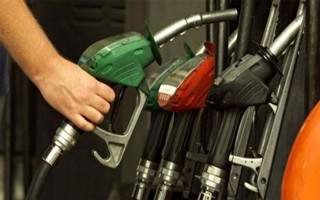CPD reveals half-yearly economic review, says fuel price hike to put pressure on common people, contribute to higher inflation
The latest fuel price hike, especially that of diesel and kerosene, may put pressure on common people, affect Boro production and push up inflation that has been on a downward trend, Centre for Policy Dialogue said yesterday.
“Regrettably, government's position on diesel subsidy is not clear. The subsidy needs to be increased to prevent the rise in cost of paddy production,” CPD Executive Director Mustafizur Rahman said at a press conference at the CPD office in the capital.
The government on Thursday increased the price of petroleum products. Diesel and kerosene prices were raised by Tk 7 per litre or 11.5 percent of the previous rate.
In a presentation on a half-yearly review of Bangladesh's macro-economic performance, Mustafiz said if fuel price is increased by 7.8 percent it results in a decline in GDP from 0.2 percent to 0.3 percent.
He said the government decided to increase fuel prices at a time when petroleum prices are stable on the international market. He said the government needs to provide incentives to farmers to ensure the country's food security against the backdrop of a fall in rice prices.
The CPD presented its observations on various risks in macro-economy, the Padma bridge issue, appointment of directors in state-owned banks, and the Hall-Mark scam's impact on the banking sector.
In the election year, the macro-economic stability and overall economic prospect could come under serious challenge in view of the looming uncertainties on the political front, said Mustafiz.
“No doubt, performance of the economy in FY2013, and also beyond, will critically hinge on how the political challenges facing Bangladesh at the moment are addressed in the coming months,” said the CPD executive director.
CPD Distinguished Fellow Debapriya Bhattacharya said politicians should reach a consensus so that the economy is not affected due to political volatility.
On the Anti-Corruption Commission's probe into the corruption allegations in the Padma Bridge project, Debapriya said it apparently seems from the developments in the probe that not only a secretary but also high-level officials were involved in the corruption conspiracy in the project.
But it is a question of investigation, he said.
The ACC arrested Mosharraf Hossain Bhuiyan, former secretary of Bridges Division, in connection with the Padma bridge corruption conspiracy case on December 26. He is being interrogated by the ACC.
The $2.9 billion project hit snags again following the exclusion of the name of ex-communications minister Syed Abul Hossain from the ACC inquiry report on corruption allegations in the project.
The WB external panel assessing the conduct of the ACC investigation was unhappy with the exclusion.
The global lender will give its final decision on its funding of the project on the basis of the opinion of the external panel.
Debapriya said the rules of business were changed after the present government came to power, and ministers, instead of secretaries have been made chief executives of ministries. Now, it seems that no decision in a ministry is taken without the knowledge of the minister concerned.
He said the way the ACC initiated legal proceedings regarding the corruption allegations it gives the impression that it had a prior understanding with the government.
It apparently seems that the proceedings were not acceptable to the WB external panel, and that it has also lessened the possibility of getting the WB loan in the project.
“We will have to wait for the external panel's opinion to be sure about it.”
He said if the ACC re-considers the case after interrogating the accused, it may increase the chance of getting the WB loan.
CPD Executive Director Mustafiz presented the Hall-Mark scam's impact on the banking sector and placed a set of recommendations, including the removal of political baggage of the board of directors of state-owned commercial banks.
Talking on the issue, Debapriya said in the recent appointments of directors (last month) in the state-run banks, the number of political appointees was little fewer compared to the previous time.
He said alongside professionals, political personalities without any experience in running banks have been appointed since the restoration of democracy in Bangladesh in 1991.
Debapriya said a high-level committee should be formed to select board members and the central bank should have more powers in appointing them.
Source: The Daily Star








